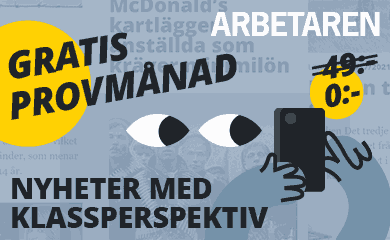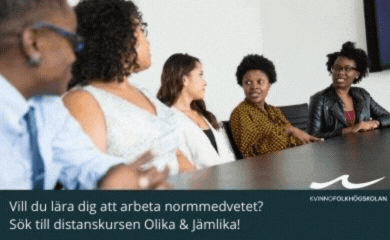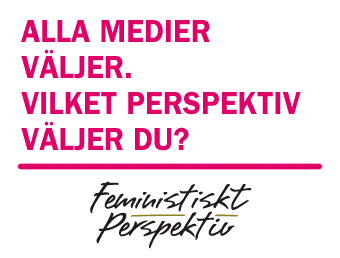The Culture of Grief - Philosophy, Ecology and Politics of Loss in the Twenty-first Century
The research centre The Culture of Grief has invited Judith Butler, Martin Hägglund, Jonathan Lear, Arne Johan Vetlesen and Simon Critchley for a one-day online seminar on the philosophy, ecology and politics of loss in the twenty-first century.
We live in a time of multiple crises and extreme loss. Due to the financial crisis in 2007-8, people all over the world have lost their jobs, their homes, their livelihood, whereas people, especially in the Global South, are experiencing and expressing profound losses of nature and of a whole way of life because of global warming, melting ice or, conversely, excessive fires and endless draught. At the moment, a global pandemic haunts every corner of the world, and has made us acutely aware of the fragility that defines life on planet earth. But how are these losses to be understood? What forms of grief are at work and at stake? How do they differ, if at all, from the ‘universal’ and ‘transhistorical’ human experience of bereavement, of mourning the loss a loved one? If the branch of philosophy is historical – bound to the problems, dilemmas and aporias of a given time – it would appear to be a philosophical necessity to come to terms with such questions, and to be up to the timely task of conceptualizing and analysing grief and loss in the contemporary age.
The research centre The Culture of Grief has, for the reasons just indicated, invited some of today’s most influential and socially oriented thinkers for a one-day seminar on the philosophy, ecology and politics of loss in the twenty-first century. In a dialogical setting, our attempt is to formulate a cultural analysis and critique with a point of departure in questions related to grief and loss. Confronting the maladies of contemporary life, we hereby seek a deeper understanding of the cultural and existential predicaments of our time. Grief exists in the intersection between relationality and finitude and may provide significant insights into the vulnerable lives that we share – and sometimes do not share – on earth. Grief teaches us that losses (be that of humans, animals, plants, values, land, property or belief systems) do not leave us unaffected. As long as there will be grief, one can hope that there will be life, or, alternatively but not unrelatedly, that the gates to nihilism will remain partly closed.
With this event, we thus wish to explore the extent to which grief can be thought as an existential and political concept and how it might guide and even transform our thinking of the current global and ecological situation. Together with Judith Butler, Martin Hägglund, Jonathan Lear, Arne Johan Vetlesen and Simon Critchley, we aim to explore the following questions:
In what ways are grief and loss related to the ecological crisis? Can one grieve the loss of the world and who – if anyone, is to grieve the loss of the human race? Can and should we grieve our own potential extinction?
Is grief relevant in a time of the Anthropocene or should it be abandoned for radical political changes to take place? Is there grief without humans? And is there a human world beyond grief? If grief rases the question of who we are, then who are we?
How can the link between grief and capitalism be thought? How are the inequalities that are intrinsic to the global economy tied to grief? In what ways has grief itself become a product on the market of feelings?
How can questions related to gender and race be approached and conceptualiced through the lenses of gief and loss? What role does grief and grieavability play in sexism, racism and xenophobia? What is the relationship between grief, violence, rage and evil?
Can grief be percieved as fuel for political action? If so, how would a contemporary grieving protest look like? Is there a revolution of grief and how do we grapple with “the morning after”?
To what extent is grief a question about accepting the limits of human agency and the inevitability of suffering and to what extent can it function as s demarcation line where “enough is enough”? How much suffering and what kinds of suffering should we carry today?
PLEASE NOTE: THE EVENT HAS BEEN CHANGED TO AN ONLINE SEMINAR WITH THE FOLLOWING TIME SCHEDULE:
PROGRAM Central European time (CEST)
Kl. 12 - 12:15 Introduction Alfred Bordado Sköld
Kl. 12:15 - 13:15 Arne Johan Vetlesen (CEST) Interviewed by Anders Petersen
Kl. 13:30 - 14:30 Martin Hägglund (07:30-08:30 GMT-4) Interviewed by Alfred Bordado Sköld
Kl. 14:30 - 15:30 Break
Kl. 15:30 - 16:30 Simon Critchley (09:30-10:30 GMT-4) Interviewed by Svend Brinkmann
Kl. 16:45 - 17:45 Jonathan Lear (09:45-10:45 GMT-5) Interviewed by Kresten Lundsgaard-Leth
Kl. 18:00 - 19:00 Judith Butler (09:00-10:00 GMT-7) Interviewed by Mikkel Krause Frantzen
Kl. 19:00 - 19:15 Round-up
JUDITH BUTLER Judith Butler is the Maxine Elliot Professor of Comparative Literature at University of California, Berkeley. She is the writer of numerous books, including: Gender Trouble: Feminism and the Subversion of Identity (1990); The Psychic Life of Power: Theories of Subjection (1997); Precarious Life: Powers of Violence and Mourning (2004); Frames of War: When is Life Grievable? (2009) and recently, The Force of Nonviolence (2020).
JONATHAN LEAR Jonathan Lear is the John U. Nef Distinguished Service Professor at the Committee on Social Thought and in the Department of Philosophy at The University of Chicago. He is the writer of numerous books, including Love and Its Place in Nature: A Philosophical Interpretation of Freudian Psychoanalysis (1990); Radical Hope: Ethics in the Face of Cultural Devastation (2006); A Case for Irony (2011), and recently, Wisdom Won From Illness: Essays in Philosophy and Psychoanalysis (2017).
MARTIN HÄGGLUND Martin Hägglund is Professor of Comparative Literature and Humanities at Yale University. He is the writer of numerous books, including: Radical Atheism – Derrida and the Time of Life (2008); Dying for Time – Proust, Woolf, Nabokov (2014); and recently, This Life – Secular Faith and Spiritual Freedom (2019).
ARNE JOHAN VETLESEN Arne Johan Vetlesen is Professor of Philosophy at The University of Oslo. He is the writer of numerous books, including: Evil and Human Agency: Understanding Collective Evildoing (2005); The Denial of Nature - Environmental Philosophy in the Era of Global Capitalism (2015), and recently, Cosmologies of the Anthropocene: Panpsychism, Animism, and the Limits of Posthumanism (2019).
SIMON CRITCHLEY Simon Critchley is the Hans Jonas Professor of Philosophy at the New School for Social Research, New York. He is the writer of numerous books, including: Very Little... Almost Nothing: Death, Philosophy, Literature (1997); Infinitely Demanding. Ethics of Commitment, Politics of Resistance (2007); The Faith of the Faithless (2012), and recently, Tragedy, the Greeks, and Us (2019).
REGISTRATION Not necessary
PRICE Free
ORGANIZER The research centre The Culture of Grief, Aalborg University
WEB https://www.kommunikation.aau.dk/forskning/vidensgrupper/cqs/sorg/culture-of-grief/
STREAMING The seminar can be live-streamed on the following link: Updated in time for the event.
När: 3 december 2020 12:00 - 3 december 2020 19:30
Var: / Digital
Arrangör: Alfred Bordado Sköld






















MEST KOMMENTERAT
SENASTE KOMMENTARERNA
Om Var Grupp 8 en feministisk organisation?
Om #bildskolan 21: Att äta Den Andre
Om #bildskolan 21: Att äta Den Andre
Om Porr handlar om betalda övergrepp
Om Nobels fredspris till kampanj för att avskaffa kärnvapen
Om Feministiskt perspektiv öppnar arkivet och startar på nytt!
Om Rödgrönt ointresse för fred och nedrustning borde oroa många
Om Var inte målet att vi skulle jobba mindre?
Om Feministiskt perspektiv öppnar arkivet och startar på nytt!
Om Feministiskt perspektiv öppnar arkivet och startar på nytt!
MEST LÄST